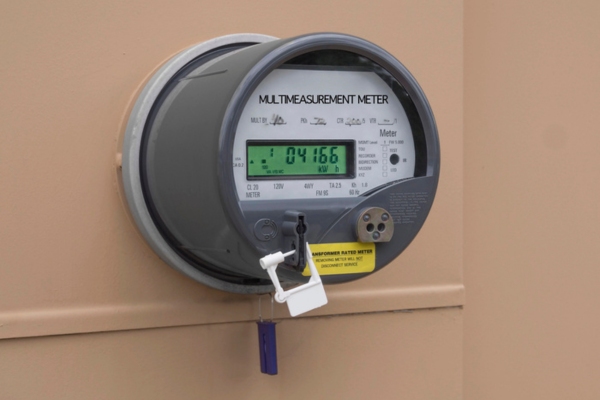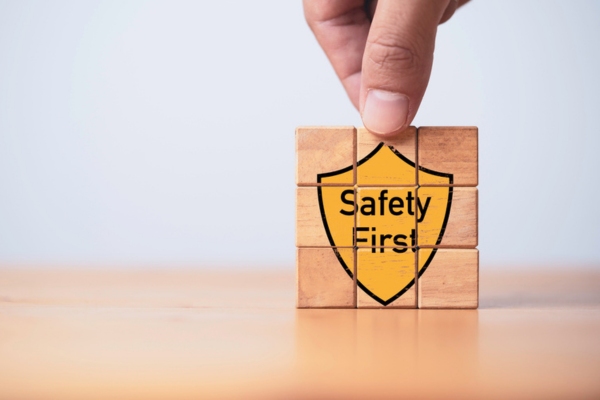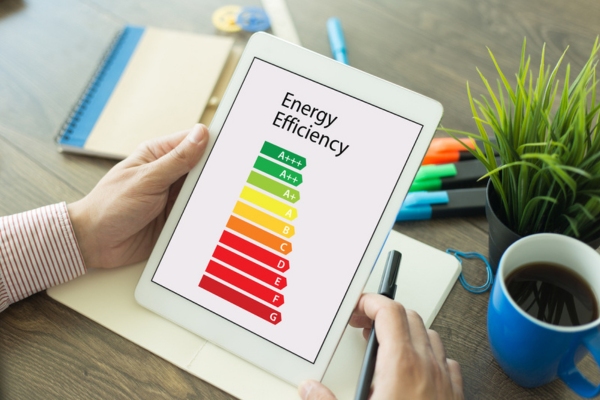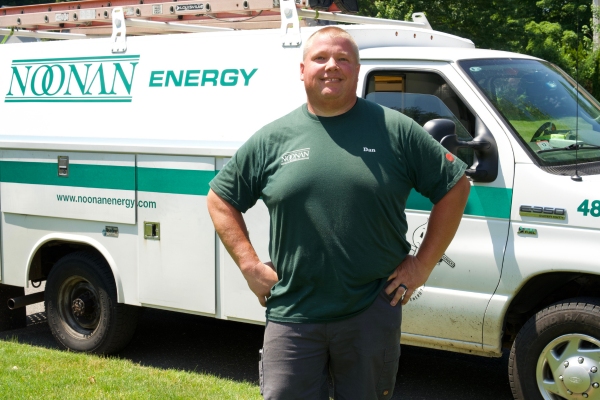Contents
- 1 Navigating the Basics of Your Home’s Electrical System: A Guide for Beginners
- 2 Basic Concepts of Electrical Systems
- 3 Safety First: Understanding Risks and Preventive Measures
- 4 Home Electrical System Components Explained
- 5 Energy Management and Efficiency
- 6 When to Call a Professional Electrician
- 7 FAQs: Understanding Your Home’s Electrical System
- 8 Conclusion
- 9 Contact Noonan Energy for Reliable Electrical Services
Most homeowners will agree that having a basic understanding of the home electrical system is essential. It enhances safety and empowers you to identify problems early, communicate effectively with electricians, and make knowledgeable decisions about electrical upgrades and repairs.
This article by Noonan Energy provides a straightforward and clear overview of your electrical system, helping you navigate its complexities confidently. We’ll explore everything from the main components that power your home to tips for troubleshooting common issues.

Navigating your home’s electrical system can be straightforward. This article will simplify critical components and their functions, enabling you to manage your electrical needs safely and effectively.
Basic Concepts of Electrical Systems
Understanding the fundamental principles of electricity is crucial for effectively managing and maintaining your home’s electrical system.
Looking for Reliable Electrical Services? Call Noonan Energy! For dependable and professional electrical services, Noonan Energy is your go-to provider. Contact us today and let our skilled electricians take care of your electrical needs.
Electricity Basics
Electricity in your home operates through crucial concepts, including voltage, current, resistance, and power. Voltage is the pressure that pushes electrons through a circuit, a current is the rate at which these electrons flow, measured in amperes, and resistance determines how much a material impedes this flow, measured in ohms. Power quantifies the rate of energy usage in watts, calculated by multiplying voltage and current.
In residential settings, electricity is typically supplied as Alternating Current (AC), which reverses direction periodically, making it efficient for long-distance transmission and suitable for household wiring. In contrast, Direct Current (DC) flows steadily in one direction and is often used in batteries and some electronics, highlighting the importance of understanding both types for effectively managing home appliances.
Components of the Electrical System

Key to any home electrical system is the following:
- Service Head: Often referred to as the “Weatherhead,” the service head is a capped pipe on your roof that allows electrical wires from the power line to enter your home safely and shield them from the elements.
- Service Drop: This is the collection of overhead wires that extend from the utility pole to your service head, delivering electricity to your meter.
- Meter: The meter is mounted outside your home and measures your household’s electricity consumption, allowing your utility company to bill you accurately.
- Main Breaker Panel: This panel is the central point where electricity from the meter is distributed to different circuits throughout your home. It contains circuit breakers that protect each circuit from overloading by interrupting power flow when necessary.
Experience Electrical Issues? Call Noonan Energy Today! Reach out to Noonan Energy for all your electrical needs. Our experts can assist you with any issues, ensuring your home remains safe and functional. Call now!
Safety First: Understanding Risks and Preventive Measures
Prioritize safety when handling electricity, as it helps prevent accidents and ensures your home is secure.
Common Electrical Hazards
Homes often encounter risks from overloaded circuits, faulty wiring, and outdated electrical components. Overloading can cause overheating and potential fires, while faulty wiring can result in short circuits and electrical shocks. Outdated components may need to meet current safety standards, increasing the risk of failures.
Safety Devices and Features

Essential safety devices include Ground Fault Circuit Interrupters (GFCIs) and Arc Fault Circuit Interrupters (AFCIs). GFCIs prevent electric shock by cutting off power when a ground fault is detected, which is ideal for moisture-prone areas like bathrooms. AFCIs protect against fires by detecting and interrupting electrical arcs. Surge protectors are also crucial for protecting electronics from voltage spikes, commonly used with sensitive equipment.
Safety Tips
Be alert to signs of electrical issues, such as flickering lights, burning smells, and frequent breaker trips, which indicate potential hazards. In an electrical emergency, immediately shut off power at the main breaker and contact a professional. Regular checks by a qualified electrician can help maintain system safety and functionality.
Have Electrical Questions? Get in Touch with Noonan Energy! If you have any questions or need advice on electrical matters, Noonan Energy is here to help. Call us for expert guidance and top-notch service. Call today!
Home Electrical System Components Explained
A thorough understanding of your home’s electrical components can enhance safety, efficiency, and functionality.
Wiring Systems
Homes typically use copper or aluminum wiring. Copper is more commonly used due to its corrosion resistance and superior conductivity, making it ideal for most residential electrical needs. Aluminum, being lighter and less expensive, is also used, especially for larger conductors.
The wire gauge, or thickness, is crucial as it determines the wire’s current-carrying capacity. Lower gauge numbers indicate thicker wires, which can handle more electrical load, which is crucial for preventing overheating and potential fires.
Outlets and Switches
There are various outlets and switches suitable for residential use. Standard outlets are common, but GFCI outlets are essential for preventing electric shock in moisture-prone areas like bathrooms and kitchens. AFCI outlets protect against fires by detecting and interrupting electrical arcs. Additionally, smart outlets and switches allow for remote control of lighting and appliances and can monitor energy usage, enhancing convenience and efficiency.
Want to Ensure Your Electrical System is Safe? Contact Noonan Energy! Safety is our priority. Call Noonan Energy to schedule a service appointment, and rest easy knowing your electrical system is in good hands. Call today!
Lighting Fixtures
Lighting options such as LED, fluorescent, and incandescent bulbs vary in efficiency and use. LEDs are the most energy-efficient, use less electricity, and last longer than other types. Though not as efficient as LEDs, fluorescents are better than incandescent and ideal for areas requiring bright, widespread light. Incandescents offer warm light but are less efficient. Proper placement and selection of these lights based on an area’s specific needs can significantly enhance energy savings and improve the functionality and comfort of your living spaces.
Energy Management and Efficiency

Effective energy management and efficiency are pivotal in reducing costs and enhancing the sustainability of your home.
Smart Home Technology
Smart devices like thermostats, lights, and security systems seamlessly integrate with your home’s electrical system, offering enhanced control and automation. These technologies allow for the remote operation and monitoring of systems, leading to significant improvements in energy management. Automating heating, lighting, and security can optimize energy use, reducing waste and lowering utility bills.
Need an Electrical Upgrade? Contact Noonan Energy! Are you thinking about upgrading your electrical system? Noonan Energy has the expertise to guide you through every step of the process. Give us a call to discuss your options.
Energy Saving Tips
To further reduce electrical consumption, consider implementing practical steps such as:
- Upgrade Appliances: Switch to energy-efficient appliances to reduce power usage.
- LED Lighting: Install LED bulbs for better energy efficiency and longer lifespan.
- Programmable Thermostats: Use programmable thermostats for automatic temperature adjustments based on time and presence, minimizing energy waste.
- Improve Insulation: Enhance insulation and seal leaks to control temperature and decrease heating and cooling demands.
When to Call a Professional Electrician

Homeowners can typically handle basic electrical tasks such as resetting tripped circuit breakers or replacing light switches and outlets, which require minimal technical skills and basic safety knowledge. However, more complex undertakings like installing new circuits, updating wiring, or dealing with live wires demand professional expertise to ensure safety and adherence to local electrical codes.
Choose a qualified and reliable electrician, like Noonan Energy, for any significant electrical work. Look for professionals with valid licenses and positive reviews, ideally recommended by people you trust. During an electrical inspection, expect the electrician to thoroughly examine your system, identify any issues, and suggest necessary upgrades or repairs to ensure it meets legal standards and functions safely and efficiently.
Seeking Reliable Electrical Service? Contact Noonan Energy! Call Noonan Energy to discuss your needs and ensure your system is up to standard. Contact us now for a free consultation!
FAQs: Understanding Your Home’s Electrical System

Here are several common queries about your home’s electrical system:
What Causes My Lights To Flicker In My Home?
Flickering lights can be caused by several factors, such as loose bulbs, faulty switches, or issues with the wiring. In some cases, it may be due to an overloaded circuit, especially when larger appliances are in use. If flickering persists or occurs throughout the house, it’s best to contact a licensed electrician to diagnose and resolve any potential electrical issues safely.
Can Installing Dimmer Switches Save Energy?
Installing dimmer switches can indeed save energy. By allowing you to adjust the light levels according to your needs, dimmer switches reduce the flow of electricity to the light bulb, which can decrease energy consumption. Additionally, dimmers can extend your bulbs’ lifespan by reducing their thermal and electrical stress, contributing to overall energy savings in your home.
How Do I Know If My Home Needs Better Electrical Grounding?
Effective grounding is essential for safety in any electrical system. Signs that your home might need better grounding include frequent electrical shocks, flickering lights, and frequent tripping of circuit breakers. These issues often indicate poor grounding, which can pose serious risks. Consulting a professional to assess and possibly upgrade your grounding system can prevent potential hazards and improve the overall safety of your electrical setup.
Looking for Dependable Electrical Services? Reach Out to Noonan Energy! Explore our trusted solutions with a free electrical consultation. Call Noonan Energy today to ensure your systems meet all your needs. Call for an appointment now!
What Are The Signs That My Electrical System Is Outdated?
Several indicators can suggest that your electrical system is outdated and may need an overhaul. These include frequent tripping of circuit breakers, the inability to run multiple appliances without blowing a fuse, and reliance on fuse boxes instead of modern circuit breakers. Additionally, if your home is over 30 years old and the electrical system still needs to be updated, it likely does not meet current safety standards. Upgrading your system can enhance safety, increase your home’s value, and improve energy efficiency.
What To Do If My Circuit Breaker Keeps Tripping?
A circuit breaker that frequently trips is typically a sign of an overloaded circuit, where too many appliances are drawing power simultaneously or a fault in one of the appliances causing a short circuit. Initially, try redistributing your electrical devices across different circuits to balance the load. If the breaker continues to trip, disconnect and individually test appliances to identify if one might be faulty. If these steps do not resolve the issue, it could indicate a more serious problem within your home’s electrical system, necessitating a professional evaluation to ensure safety and proper function.
Conclusion
This article has explored the basics of your home electrical system, from understanding essential components like wiring and outlets to implementing energy-saving tips and recognizing when professional help is needed.
Continuously educating yourself about your home electrical system and undertaking responsible management can significantly enhance your home’s safety and efficiency. Thoroughly understanding and ensuring proper electrical system maintenance provides peace of mind, knowing that your household operates safely and efficiently.
In Search of Reliable Electrical Services? Connect with Noonan Energy! Discover our expert solutions through a complimentary electrical consultation. Contact Noonan Energy today for a free consultation!
Contact Noonan Energy for Reliable Electrical Services
At Noonan Energy, we deliver exceptional electrical services throughout Pioneer Valley and nearby areas. Our team of certified electricians excels in electrical safety inspections, system upgrades, installations, troubleshooting, and more. Our electricians are thoroughly trained and bring extensive knowledge and experience. Your electrical system is handled with the utmost care and professionalism by working with us.
We take pride in offering the most competitive rates for electrical services in Pioneer Valley and nearby areas. Whether you need minor repairs, a significant upgrade, or a complete system installation, Noonan Energy will provide you with the best options tailored to your specific requirements and budget. We back our services with a strong satisfaction guarantee. Call Noonan Energy today to book your appointment and receive a free, on-site consultation.
Click here to contact us today or give us a call at (800) 343-8829 if you have any questions. Click the link to view our service area.

Related Articles:

